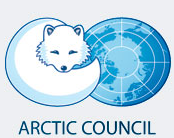Arctic Council likely to be real governance body
 0 Comment(s)
0 Comment(s) Print
Print E-mail Xinhua, May 14, 2013
E-mail Xinhua, May 14, 2013
The Arctic Council is likely to function as a real governance body around the north pole, a region where a widely approved international regime has yet to come, a prominent Finnish expert said on Monday.
"Currently it seems that the Arctic Council will evolve very quickly to become a real governance body, which it has not been for most of its existence," said Timo Koivurova, professor from University of Lapland, northern Finland.
|
|
At a time when economic activities increase within the Arctic area, Koivurova deemed it urgent to set up a political framework.
"What is needed most is to come up with forward looking political and legal arrangements so that we are prepared when climate change impacts become more real and still more economic activities take place," he said.
With the biennial Ministerial Convention of the council due to take place on Wednesday in Kiruna, Sweden, Koivurova also believed it is time for the multilateral platform to take in new participants.
"It would be very wise for the Arctic Council to first of all accept all those states and the European Union who want to be observers," he said in an email interview with Xinhua.
The argument was simply based on the fact that much of the Arctic is international, e.g. the high seas areas, deep sea-bed and almost all Arctic waters for navigation, he elaborated.
A total of 14 nations and organizations have applied to be permanent observers of the Arctic Council, a forum founded about 20 years ago grouping eight Arctic countries, namely Canada, Denmark, Finland, Iceland, Norway, Russia, Sweden and the United States.
"Since all states of the world already have rights and interests in the Arctic, why not gradually involve them more in the governance of the Arctic," said Koivurova.
The application will be discussed during meeting on Wednesday, which marks the end of the Swedish rotating chairmanship and the beginning of the two-year Canadian chairmanship.
Among the new applicants, China, South Korea and the EU are already among the six ad hoc observers. They filed a request for full observer status in 2009 but were rejected.
"I do not think it is clear-cut that Chinese application will be rejected (this time), but let's wait for the results, which are still very much open," said Koivurova, answering a question raised by Xinhua concerning the possible exclusion.
Some indigenous organizations, who are permanent participants, "may well fear that in time their status... will be undermined when China and other states and EU come to the meetings with their big delegations," said Koivurova, who also directs the Northern Institute for Environmental and Minority Law in the Arctic Centre of the University of Lapland.
The applicants should first be given the observer status, and "when time goes by and climate change impacts are more real, it may be time to think how to involve them in a more serious manner via an international treaty," he told Xinhua.
The time for a treaty is not yet ripe, "but perhaps in the future," he said.







Go to Forum >>0 Comment(s)